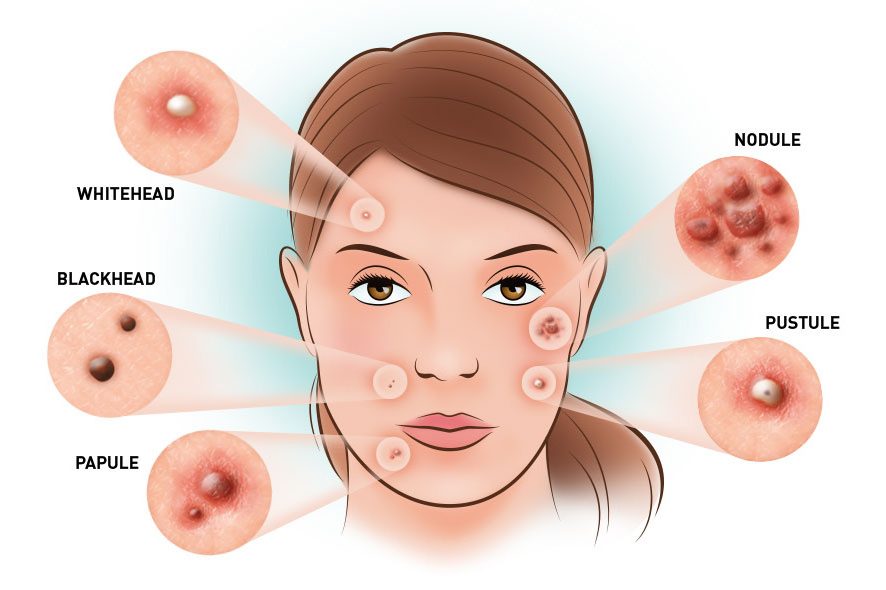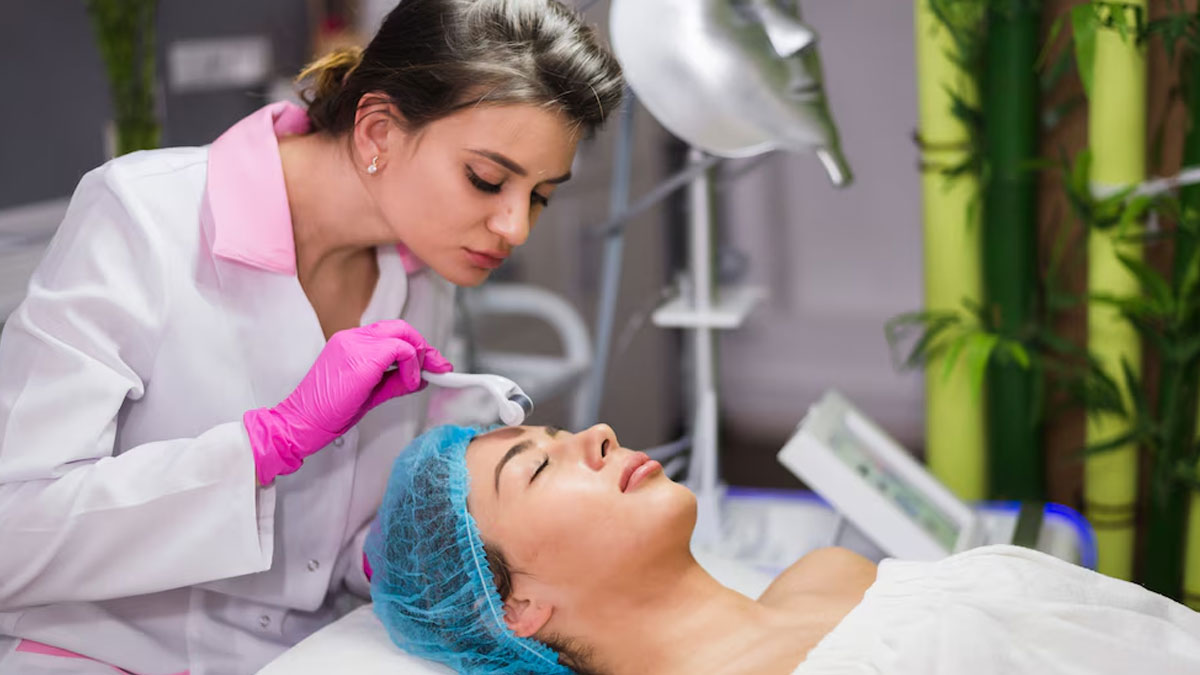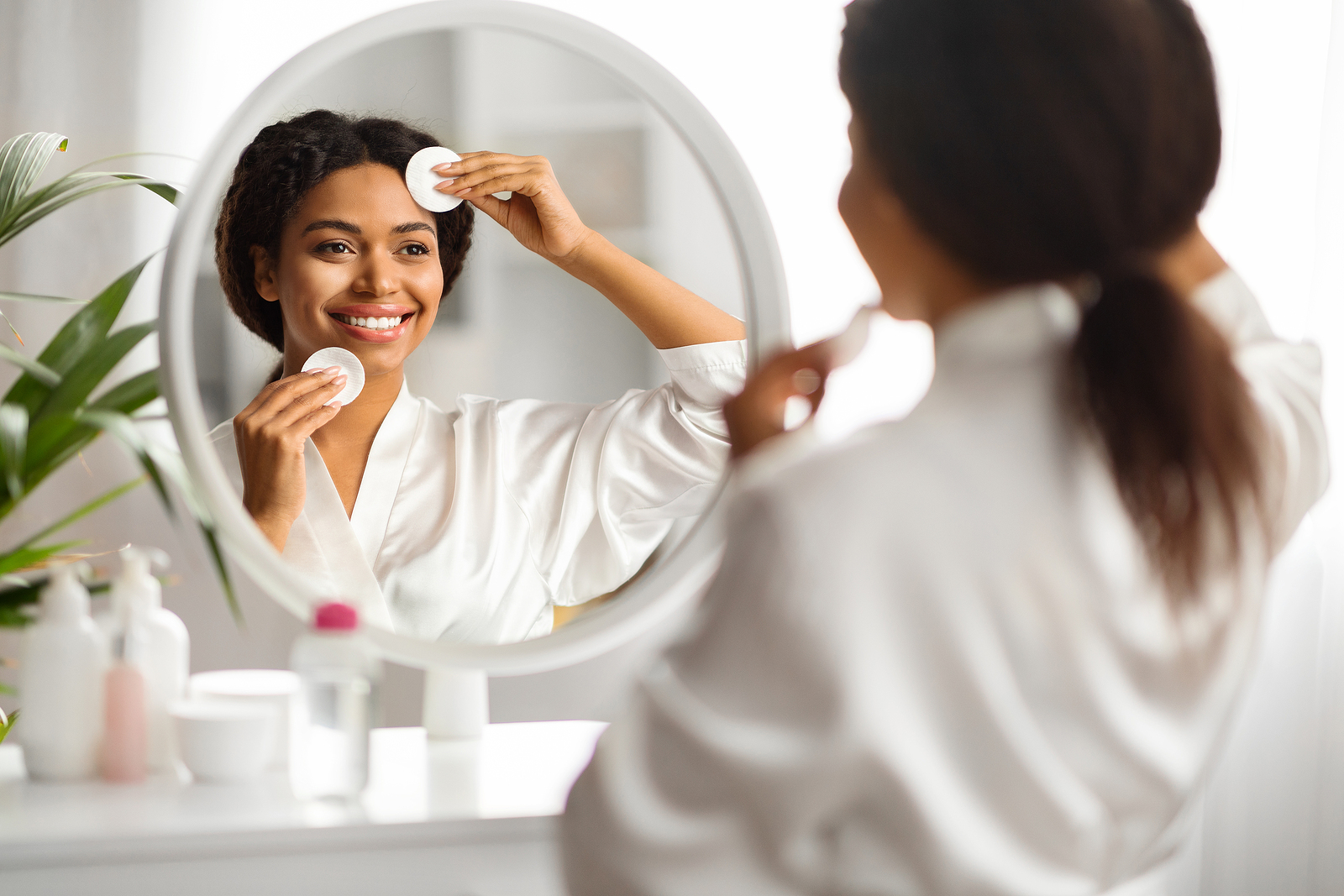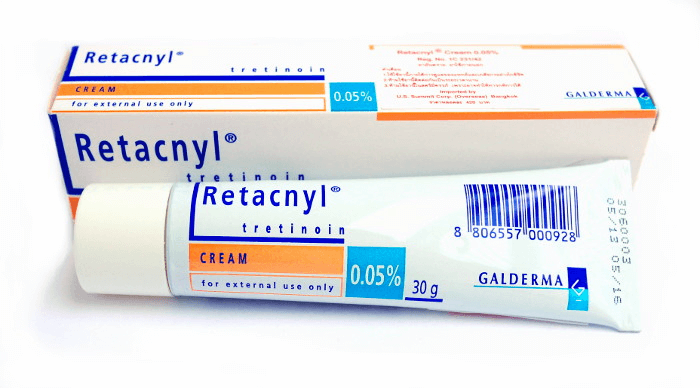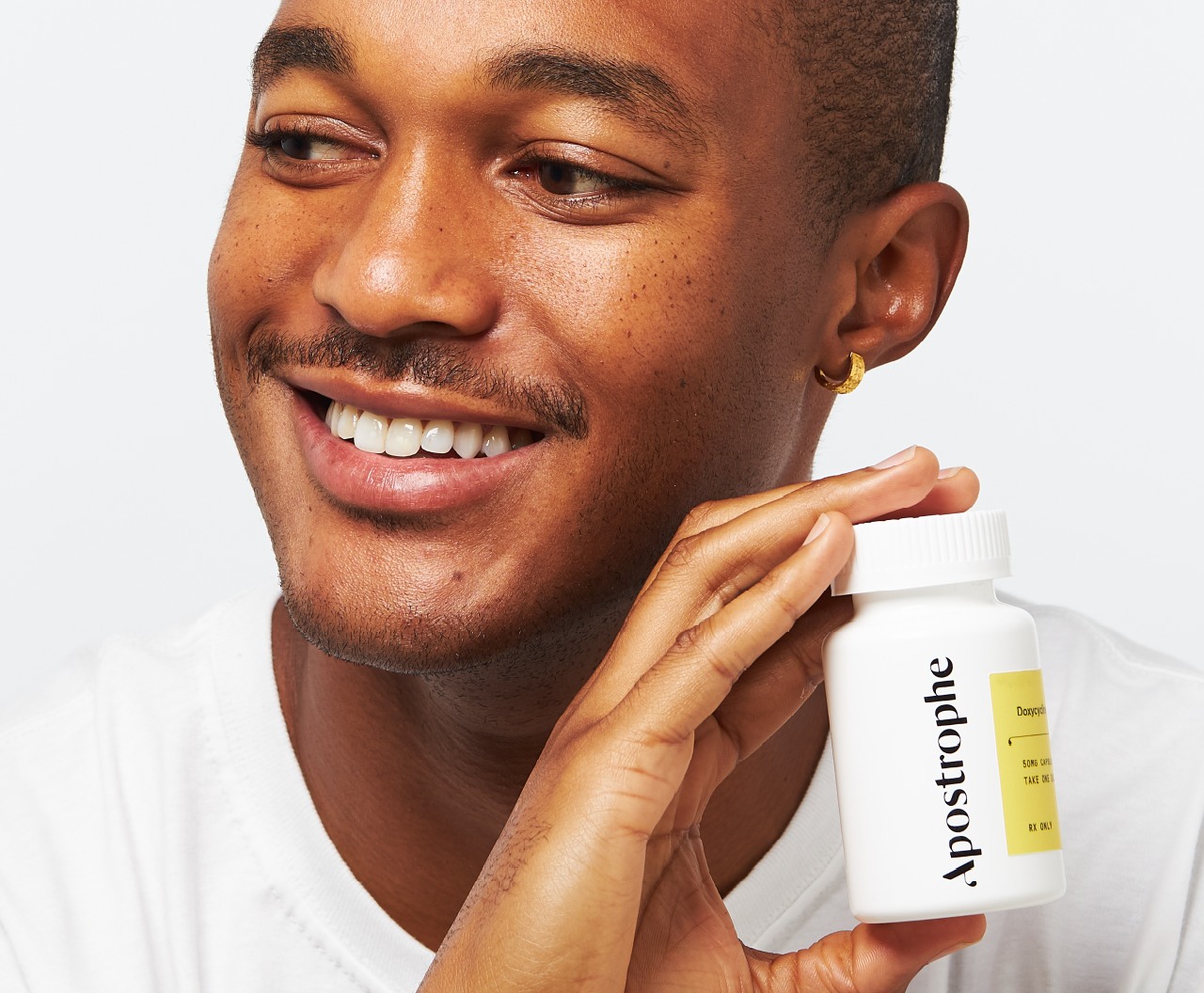Identify Your Acne Type
In your battle against those deep, painful pimples. Referred to as nodular or cystic acne. It's essential you correctly identify them.
Start by gently applying a warm washcloth on the affected area for 10-15 minutes thrice daily; this promotes healing by drawing out the pimple. Always use a fresh cloth each time to avoid bacterial spread and eschew squeezing it. Then, apply products with proven ingredients such as adapalene, azelaic acid, benzoyl peroxide or salicylic acid which excel at treating surface-level blemishes.
A hydrocolloid patch can also shield and mend your skin effectively. Remember that these treatments increase sun sensitivity so opt for protective gear like sunglasses and wide-brimmed hats when outdoors. Choose sunscreen wisely: SPF 30+, water-resistant types labeled "non-comedogenic" are your best bet.
They won't clog pores exacerbating acne issues. Persistent deep acne could necessitate visiting an expert dermatologist who has access to stronger medications adept in addressing more severe forms of this condition efficiently.
Consult a Skincare Professional
When combatting cystic acne, it's essential to seek guidance from a skincare professional. Tackling this condition with store-bought solutions might not just be futile but can aggravate the issue. A board-certified dermatologist is equipped to offer personalized advice and treatment plans that address your unique skin needs.
They may suggest prescription medications such as Isotretinoin or Spironolactone. Proven warriors in the fight against deep-seated, painful cysts beneath your skin’s surface. Remember though, online resources like DrBaileySkinCare.com serve as companions on your journey; they're not replacements for direct medical counsel.
Only a face-to-face consultation guarantees treatments tailored specifically for you. A vital step when traditional over-the-counter methods fall short of providing relief. Trusting these experts ensures that you receive safe care based on scientific evidence and exhaustive clinical expertise.
Not mere hearsay or unverified internet lore.
Tailor Your Skin Care Routine
Right off the bat, tackle your cystic acne by acting fast. Target it early and you chop days from its stay on your face. Forget those OTC remedies - they're no match for cysts deep in your skin layers.
You might as well wave a flag of surrender to scarring and spreading infection. Now pay attention: cleanse but be gentle about it! Get yourself a cleanser that's kind to sensitive skin; think natural ingredients over synthetics loaded with chemicals.
They clear out bacteria without robbing you of needed moisture – because who needs extra blemishes? And after cleansing, apply heat gently through compresses; go for warm not scalding! Soft cloth or green tea bags can help disperse internal gunk while cutting down swelling internally before making room for ice packs wrapped snugly.
Never straight against the flesh though. This combo could lessen both size and tenderness significantly. Remember non-steroidal anti-inflammatory drugs (NSAIDs) like aspirin may ease inflammation if conditions allow.
Just consult health guidelines first.
Incorporate Topical Retinoids Effectively
To deftly wield topical retinoids in your fight against cystic acne, consider them a potent ally. Think of them as traffic cops directing cell turnover within oil glands.
To halt lazy skin cells from clogging pores where bacteria feast and create zits. Reach for adapalene based products like Differin or La-Roche Posay Effaclar if you need heavy artillery, available at drugstores sans prescription due to their strength and specificity in targeting acne. For the sensitive-skinned rookies to retinol's might, opt for gentler retinaldehyde options such as Avene Retrinal Cream; they're milder yet effective.
Whichever route taken entails cautious progression: start with once-weekly applications before upping frequency gradually over weeks to avoid irking your skin into flares worse than what you’re remedying. Persisting stubborn spots after six diligent weeks? It’s high time a dermatologist intervened swiftly.
A safer bet compared both to enduring persistent blemishes or risking DIY misuse of stronger treatments that could aggravate rather than ameliorate pesky pimples.
Explore Oral Medication Options
As you battle cystic acne, oral medications emerge as a powerful ally. Amid numerous treatment options, these systemic prescriptions offer an internal approach to managing your condition when surface treatments fall short. Your healthcare provider may suggest them if topical solutions and lifestyle adjustments haven't made the impact you're seeking.
In handling cystic acne's stubbornness, antibiotics often serve as a first-line defense. They tackle underlying skin bacteria that exacerbate those painful blemishes festering deep beneath your dermis. The culprits behind unwelcome redness and swelling.
For cases with hormonal roots. Especially noted in women or individuals AFAB who experience menstrual-cycle breakouts. An array of hormone-regulating drugs like birth control pills or anti-androgen agents might be recommended by dermatologists.
Isotretinoin is a potent prescription tool for severe nodulocystic acne, acting deeply within oil glands. It requires strict oversight due to potential significant side effects and should only be used after thorough discussions with your doctor about risks versus benefits.
Monitor Diet and Lifestyle Choices
Understanding that genetics and hormones are influential, yet not sole contributors to cystic acne, pivoting towards mindful diet choices can substantially benefit your skin. Start by sidestepping high-glycemic foods. These sugary or starchy temptations like soda or white bread exacerbate acne issues.
Instead of reaching for ice cream or potato chips, consider the impact refined sugars have on your complexion. Next up: re-examine dairy consumption in your regimen. Dairy may aggravate acne for some; thus experimenting with almond milk could prove beneficial while ensuring you're still getting essential nutrients like calcium and vitamin D.
Also integral is embracing "whole" foods – increase intake of whole grains along with a colorful variety of fruits and vegetables to promote clear skin from within. And let's talk stress. It’s more than a feeling; it alters hormone levels which potentially flare-up your cystic turmoil!
Find solace in leisure activities that diffuse tension. Moreover, avoid touching those tempting blemishes as this disrupts healing. And patience here pays off abundantly!
Each choice reflects directly upon our dermal health. A truth indisputable amongst dermatologists who navigate these complexities daily.
Understand Hormonal Contributions
Hormonal fluctuations can wreak havoc on your skin, especially when they lead to the overproduction of sebum. This oily substance is notorious for clogging pores and creating breeding grounds for acne, including those deep-seated cysts that are difficult to treat. Women particularly battle hormonal acne due issues like menstruation or pregnancy.
These life stages cause hormones to shift dramatically. Tackling this issue effectively requires a tailored approach from dermatology experts at Cumberland Skin: where treatment starts with potent topicals such as retinoids or benzoyl peroxide up through antibiotics if needed. Always personalized just for you!
If these don’t cut it, oral options come into play addressing bacteria directly and blocking receptors responsible for oil production spikes. Isotretinoin remains an option despite its risks, as it's efficient against severe cases by drastically slowing down oil output. Alongside medication tweaks remember lifestyle habits count too.
Sound sleep patterns ease stress while careful product selection keeps irritation at bay ensuring clearer days ahead!
Consider Advanced Dermatological Procedures
Eradicating cystic acne requires diligence, but advanced dermatological treatments can offer some reprieve. Start by regularly washing your face; up to twice a day is recommended. Post-exercise, cleanse again to prevent sweat-induced flare-ups.
For those considering pharmaceutical assistance, spironolactone may be an option. It curbs androgen hormones like testosterone that exacerbate acne. However pregnancy discounts its suitability.
Should you pursue oral contraceptives? They could assist females in managing their condition if they contain estrogen, and are often paired with spironolactone for compounded effects.
But remember: all medications bear risks and potential side effects worth discussing with a qualified dermatologist who understands the nuances of such therapies. Struggling with persistent scars post-treatment? Dermatologists offer consultations on reducing these stubborn markers of past outbreaks.
Moreover, compresses applied thrice daily using clean cloths bring deep-seated pimples nearer the surface. The process demands patience as diminishment spans over time.
Maintain Consistent Follow-Up Care
These ingredients work diligently, alongside glycolic acid's exfoliating properties. Morning routines are crucial; begin by using a foaming cleanser designed to target acne. Follow this up with a 2.5% benzoyl peroxide lotion then hydrate your skin.
With a moisturizer like my Daily Moisturizing Face Cream suited even for sensitive complexions. As nighttime unfolds, cleanse again but switch gears towards retinol-based products which contribute significantly not just in managing pimples but also softening scars over time.
A two-fold benefit from one integral product! If these measures fall short, consult an experienced dermatologist. They may prescribe oral antibiotics targeting P.acnes bacteria or suggest isotretinoin, which must be managed carefully due to possible side effects.
Don’t let go of hope though! With diligent attention and expert consultation when needed, overcoming cystic acne is more than plausible. In our current day's arsenal of skincare advancements.
To overcome cystic acne, seek professional guidance first. Dermatologists often recommend a mix of topical treatments and oral medication for effective results. Maintaining a consistent skincare routine is vital, as is choosing non-comedogenic products to avoid clogged pores.
For severe cases, options like laser therapy or corticosteroid injections may be suggested. Monitor your diet as well; some find certain foods can aggravate their skin condition. Remember that patience pays off - with the right approach and time, you can achieve clearer skin.
References:
https://www.aad.org/public/diseases/acne/diy/treat-deep-painful-pimpl
https://drbaileyskincare.com/blogs/blog/4-ways-to-beat-cystic-acne?srsltid=AfmBOoqOjMHsOZLyP6vXrn4MQSn9Ardry76gZCblJSukVLwVIRewBVyN
https://averraglow.com/blogs/news/how-to-shrink-a-cystic-pimple?srsltid=AfmBOorLz7rLtSRMOXCxV243i_amkxlFwfL75qF_nsfdtf49YLK4mzK_
https://www.cosmopolitan.com/style-beauty/beauty/a32209669/cystic-acne-treatment/
https://my.clevelandclinic.org/health/diseases/12233-acn
https://www.usdermatologypartners.com/blog/lifestyle-and-diet-changes-you-can-make-to-improve-cystic-acne/
https://www.cumberlandskin.com/healthy-skin-blog/a-dermatologist-s-guide-to-treating-hormonal-acn
https://www.medicalnewstoday.com/articles/how-to-shrink-a-cystic-pimpl
https://drbaileyskincare.com/blogs/blog/4-ways-to-beat-cystic-acne?srsltid=AfmBOopdL9z5Ok4ksF8jU-VdiCkdLDGeSPMJlOXdarXXmU9fkBs1yq6w


